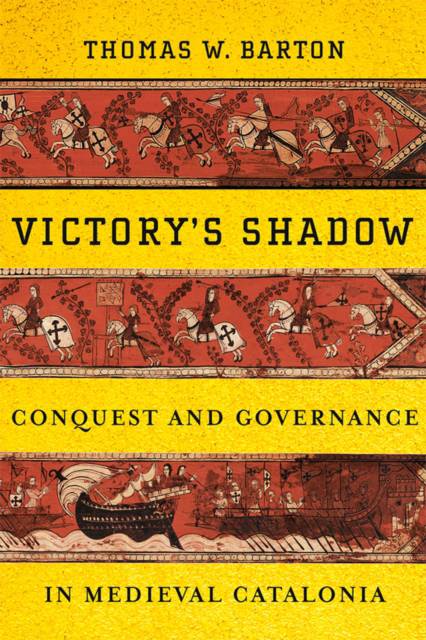
- Retrait gratuit dans votre magasin Club
- 7.000.000 titres dans notre catalogue
- Payer en toute sécurité
- Toujours un magasin près de chez vous
- Retrait gratuit dans votre magasin Club
- 7.000.000 titres dans notre catalogue
- Payer en toute sécurité
- Toujours un magasin près de chez vous
Victory's Shadow
Conquest and Governance in Medieval Catalonia
Thomas W BartonDescription
At the beginning of the eleventh century, Catalonia was a patchwork of counties, viscounties, and lordships that bordered Islamic al-Andalus to the south. Over the next two centuries, the region underwent a dramatic transformation. The counts of Barcelona secured title to the neighboring kingdom of Aragon through marriage and this newly constituted Crown of Aragon, after numerous failed attempts, finally conquered the Islamic states positioned along its southern frontier in the mid-twelfth century. Successful conquest, however, necessitated considerable organizational challenges that threatened to destabilize, politically and economically, this triumphant regime. The Aragonese monarchy's efforts to overcome these adversities, consolidate its authority, and capitalize on its military victories would impose lasting changes on its governmental framework and exert considerable influence over future expansionist projects.
In Victory's Shadow, Thomas W. Barton offers a sweeping new account of the capture and long-term integration of Muslim-ruled territories by an ascendant Christian regime and a detailed analysis of the influence of this process on the governmental, economic, and broader societal development of both Catalonia and the greater Crown of Aragon. Based on over a decade of extensive archival research, Victory's Shadow deftly reconstructs and evaluates the decisions, outcomes, and costs involved in this experience of territorial integration and considers its implications for ongoing debates regarding the dynamics of expansionism across the diverse boundary zones of medieval Europe.
Spécifications
Parties prenantes
- Auteur(s) :
- Editeur:
Contenu
- Nombre de pages :
- 432
- Langue:
- Anglais
Caractéristiques
- EAN:
- 9781501736162
- Date de parution :
- 15-06-19
- Format:
- Livre relié
- Format numérique:
- Genaaid
- Dimensions :
- 211 mm x 236 mm
- Poids :
- 725 g







